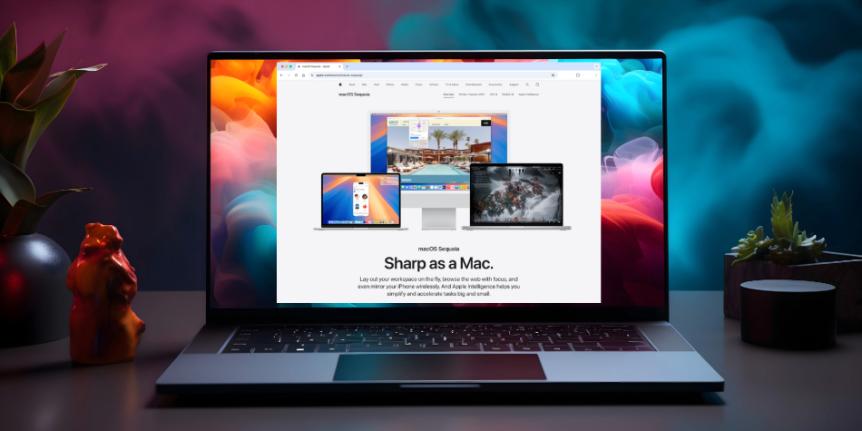Apple has released its newest operating system, macOS 15 Sequoia. As is often the case with new operating systems, there are expected incompatibilities with a number of widely used applications at CU Boulder and beyond. Because of this, OIT recommends waiting to upgrade Apple devices to macOS 15 Sequoia until most incompatibilities are addressed.
OIT is in the process of testing the new operating system for incompatibilities with OIT-supported software. The macOS 15 Sequoia Release Information page is your resource for more details about known issues, and we'll continue to update that page as we learn more.
As we have done in the past, all Mac systems enrolled in Dedicated Desktop Support (DDS) will be prevented from upgrading to the new operating system until significant compatibility issues have been addressed.
Compatibility issue with CU Boulder Wi-Fi Networks
Apple’s Private Wi-Fi Address feature, recently introduced in macOS Sequoia and updated for iOS 18 and iPadOS 18, could cause connectivity issues for CU Boulder Wi-Fi networks if not set to “off.” The same is true if you update your iWatch or VisionPro.
The Private Wi-Fi Address feature provides users a higher level of privacy by periodically changing a device’s locally administered hardware address, known as a MAC address. Frequently changing your MAC address on a network makes it harder to track your device and its activity over time. This is why it is advisable to set your Private Wi-Fi Address to “rotating” for public networks like coffee shops or airports.
Since the CU Boulder Wi-Fi networks, UCB Wireless and UCB Guest, require users to register their device, rotating or changing your MAC address will force the device to go through the network registration process each time the MAC address changes. This could result in your devices frequently dropping their network connection. This is why for UCB Wireless and UCB Guest, and even eduroam, OIT strongly recommends turning the Private Wi-Fi Address setting to “off” on these networks.
Here is how to turn off the Private Wi-Fi Address setting on a Mac and here’s how to turn it off on an iPhone and iPad.
Because Private Wi-Fi Address is a per-network setting, OIT's recommendations are only for CU Boulder networks. For all campus Wi-Fi users with an IdentiKey, we continue to recommend that you connect to UCB Wireless rather than UCB Guest since UCB Guest restricts access to certain campus resources. As OIT investigates the network performance impacts of Private Wi-Fi Address, OIT also recommends that eduroam users turn off Private Wi-Fi Address at this time for better stability.
Visit Apple's website for more information about Private Wi-Fi Address.
Stay up-to-date on recommended software operating systems
Visit the macOS 15 Sequoia Release Information page for further details and the Software Lifecycle page to find all of OIT's recommendations about current software and operating systems. If you have questions about Sequoia or any of OIT's recommendations, please contact the IT Service Center at oithelp@colorado.edu or call 303-735-4357 or, if you're a DDS customer, open a case with your DDS Technician.

